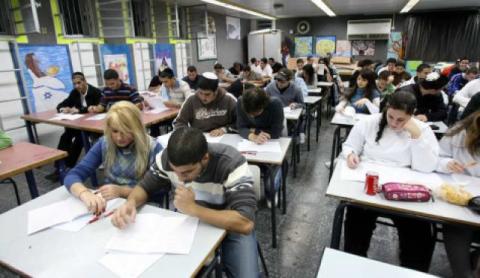The importance of learning Arabic
Education Minister Shay Piron recently canceled the obligation to study Arabic in the 10th grade. But this obligation had not been enforced properly anyway, and only a small number of Jewish students took matriculation exams in Arabic. In addition to these inconsistent regulations, curricula have been changed abruptly and the education system mostly refrains from employing Arab teachers, who speak the language perfectly. As a result, the teaching standard of Arabic is low and the students do not acquire eloquence in the language.
Arabic-language studies mostly evoke a negative connotation of “the enemy’s language” and in most cases these studies are aimed at training the next intelligence generation. It would not be far-fetched to assume that studies of this kind are not conducive to a positive approach to either the language or its speakers. On the contrary, they contribute to the already existing alienation and suspicion between Jews and Arabs. Israel should see Arabic as an official language not only on paper, and back this declaration with practical steps. The Education Ministry must set a homogenous study program for all schools, consisting of uniform criteria for compulsory studies, which will apply to the religious state schools as well.
But first and foremost the ministry must employ Arab teachers, who are familiar with the spoken and literary tongue, and train more teachers, both Arab and Jewish, to teach Arabic. Arabic studies in schools should be no less important than English studies, whose necessity nobody doubts. After all, Israel is part of the Middle East, which is mostly Arab, and it is appropriate for its people to invest more in learning their closest neighbors’ language.
Haaretz Editorial

